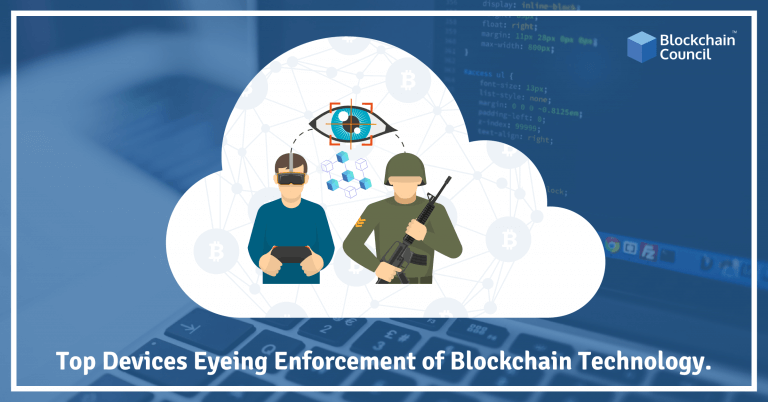
- Toshendra Kumar Sharma
- May 03, 2019
Understanding Blockchain Technology
It wouldn’t be too much to say that blockchain is one of the most awe-inspiring innovations which has taken place since the birth of the internet. It is a digital phenomenon which most people are familiar with. But for those looking for a concise idea of what blockchain is, it can be described as a modern database using distributed ledger technology setup over a peer-to-peer decentralized network which is tamper-proof. Every single information is held out for every user to see as every single node on the network has a copy of the ledger. It is highly secure and transparent with no scope for fraudulence.
A unique ‘block’ is created each time any interaction or transaction takes place between two points on the blockchain. Each block is assigned a unique digital signature which is encrypted. Encryption refers to using mathematical algorithms to scramble data if someone tries to overlook or intercept data on the blockchain.
Today, blockchain has found its way into each and every industry and business segment. In particular, it has impacted the telecommunications and wireless industry in ways unimaginable. It has impacted the way in which these networks interact and operate alongside one another.
Original properties of everyday devices can be enhanced using blockchain technology. Let’s analyze a few devices which act as the medium for blockchain technology to impact our everyday lives.
1. Smartphones
These are cell phones which are specifically created with the built-in functionality of processing blockchain transactions. HTC Corp., the Taiwanese consumer electronics company, has recently launched its first blockchain-enabled smartphone Exodus 1. The main feature is a ‘security enclave.’ It is kept away from the processor and the Android operating system. The enclave works on an HTC-developed wallet called Zion. It is used to store crypto keys offline in a secure manner and act as a computer node in a blockchain network.
Exodus strikes a balance between security and convenience. The crypto keys will always be with you and at the same time, they are not connected to the operating system which reduces the chances of being hacked or stolen. People owning the Exodus phone can sync their accounts and Secure Enclave acts as a protective layer for their online shopping and crypto transactions. Another blockchain-enabled smartphone is Sirin’s Finney which has an in-built cold storage crypto wallet for storing Ethereum, Bitcoin, and other crypto tokens.
2.Smart washing machine
A smart washing machine is one which will use an optical sensor or a camera to determine the cleanliness factor of the laundry. Robotics provides arms for the washing machine which help in loading and unloading of clothes. The smart washing machine has the capability of communicating with other washing machines in the world. Washing recommendations can be provided for certain models of washing machines. In case of malfunction, the washing machine will have the ability to independently order a technician who prints the required spare parts with a mobile 3D printer, carries out the repair, and documents the process.
Role of blockchain technology in smart washing machines:
- Protecting intellectual property while printing spare parts.
- Tamper-proof documentation of individual usage.
- Supplying electricity from various sources in compliance with predefined rules.
- Contracting of service technicians and documentation of the maintenance.
- Distributing profits or costs among owners.
3. Computer
Recently, IBM has built a computer which is the size of a grain of salt. It is one type of device which IBM terms as ‘crypto-anchors.’ It uses ‘digital fingerprints’ which are embedded in everyday items to verify provenance and contents. This computer is small enough and cheap enough to be used anywhere. This paves the way for new solutions which can be used to tackle food safety, the authenticity of manufactured components, and genetically modified products.
4. Cryptocurrency watches
Chronoswiss, the Swiss watch manufacturer, has unveiled an exclusive series of crypto-design watches. It boasts of user-friendly design and is available on five crypto-design timepieces. Each crypto-themed watch has a digital certificate which is dedicated to Bitcoin, Ethereum, Zaif, COMSA or NEM. These are recorded on the blockchain which makes it secure and impossible to manipulate.
Chronoswiss combines the fundamentals of traditional watchmaking with the digital revolution of new global currencies. The detail on each watch such as the warranty period and the serial number is officially registered on ‘LuxTag,’ the blockchain platform. It is a service provider which uses the NEM blockchain platform to combat counterfeit goods and theft. It offers digitized tagging solutions for luxury goods.
5. Water purifier
In January this year, telecommunications giant, China Mobile has incorporated blockchain into a household product. It has developed a water purifier with an in-built chip and IoT module. This helps collect data on user behavior. Depending on how often consumers use this product, they will earn a blockchain token called PWMC which they can then redeem for replacement filters or purchase of other goods. As mentioned by China Mobile, this product relates more individuals with cryptocurrency and binds them with this advanced technology. The computer chip and IoT modules are connected to the internet and hence will run as individual nodes to transact and record the user’s data on a distributed network. This data will be recorded on the public blockchain called SWTC.
Conclusion
Blockchain is, undoubtedly, the backbone of a new, improvised version of the internet. Blockchain is already influencing numerous aspects of our lives for the better and judging by its humongous growth in the past decade, it is certainly here to stay.





































































 Guides
Guides News
News Blockchain
Blockchain Cryptocurrency
& Digital Assets
Cryptocurrency
& Digital Assets Web3
Web3 Metaverse & NFTs
Metaverse & NFTs
